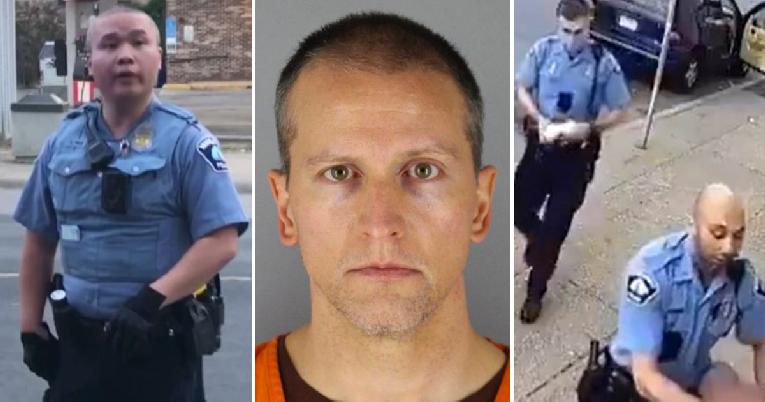
*Wait There’s more … for Derek Chauvin and three other ex-Minneapolis cops. And it’s not good. Federal prosecutors have now charged Chauvin — the use-to-be Minneapolis police officer who was convicted of killing George Floyd— and three other former officers (from that department) of civil rights violations tied to Floyd’s May, 2020 death.
The other three officers named in the federal indictment are J. Kueng, Thomas Lane and Tou Thao. If you recall, they were all on the scene when Chauvin knelt on Floyd’s neck for nine Plus minutes during an arrest.
The civil rights charges against Chauvin, Kueng, Lane and Thao include violating Floyd’s right to be free from unreasonable seizure and excessive force. All four officers were also charged for their failure to provide Floyd with medical care.
On top of those charges, Chauvin also faces a second indictment stemming from his actions in the violent 2017 arrest of a 14-year-old boy.
Regarding that case, the Minneapolis Star Tribune reports that prosecutors are accusing Chauvin of striking a Black teenager in the head with a flashlight and placing him in a prone position for 17 minutes, ignoring the boy’s pleas that he couldn’t breathe. Sound familiar?
OTHER NEWS ON EURWEB: DC’s Black Lives Matter Plaza to Become a Permanent Art Installation ‘With Lighting and Landscaping’ (Video)
Here’s more via Insider:
The federal government doesn’t often pursue civil rights cases against officers, in part because its policy is not to bring criminal charges unless there is admissible evidence that would make it probable to obtain and sustain a conviction, says Barbara L. McQuade, former U.S attorney for the Eastern District of Michigan.
It’s also unusual for the Justice Department to bring federal charges in a case where there has been a state conviction, according to McQuade, unless state and federal prosecutors want two convictions to serve as “a backstop” to each other in what is known as the petite policy.
“It says, generally, that federal prosecutors should not duplicate the efforts of state prosecutors, unless there is some substantial federal interest that has not yet been vindicated,” McQuade said.
We Publish News 24/7. Don’t Miss A Story. Click HERE to SUBSCRIBE to Our Newsletter Now!





